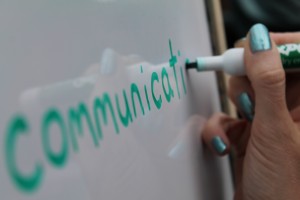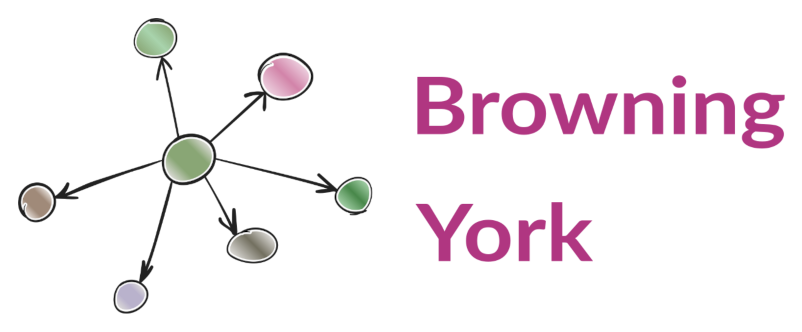This month’s guest post is all about a model that you can use to identify your own and your colleagues’ communication styles. Thanks to Phil Gowler, from Woodley NLP, for explaining what it is and how to use it.
 Of all the pitfalls and problems there are in the workplace, and at home for that matter, communication tends to be at the heart of most of them. It is of course more complicated than people tend to think. It’s more than just ‘saying words’. After all, the words we use can themselves create problems.
Of all the pitfalls and problems there are in the workplace, and at home for that matter, communication tends to be at the heart of most of them. It is of course more complicated than people tend to think. It’s more than just ‘saying words’. After all, the words we use can themselves create problems.
So, as a way of exploring communication I would love to introduce to you the Parent-Adult-Child model, which can be really effective in identifying where communication failures can occur and why.
The Parent Adult Child Model (PAC) is a part of Transactional Analysis theory. Eric Berne, founder of Transactional Analysis, believed that each of us have 3 ego states (our Parent, Adult and Child).
• Parent
The Parent ego state is comprised of the behaviours, thoughts and feelings copied from our parents, or other parental figures. Our parent is made up of hidden and overt messages such as ‘you / I should’, ‘under no circumstances’, ‘always’ and ‘never forget’, ‘don’t lie, cheat, steal’. So when you find yourself saying the word ‘should’ a lot, you are talking like a parent.
There are two principal parent ego states:
• Nurturing. Nurturing Parent represents more affirming and more pleasant qualities of what parents and society do for a person.
• Critical. Critical Parent behaviours generally represent the corrective behaviours of real parents and the prohibitive messages of society.
Our parent is formed by external events and influences upon us as we grow through early childhood. As functioning adults we have the ability to change the messages, but it does require awareness and effort. Parent can also be described as an ego state that is TAUGHT.
• Adult
‘Adult’ describes our ability to think and determine action for ourselves based upon the ‘here and now’. It draws on our understanding and analysis of our external and internal environment. In addition, the adult in us is the means by which we keep our parent and child in check.
• Child
This is the ego state in which individuals behave, feel and think similarly to how they did as a child. For example, a person who receives a poor evaluation at work may respond by looking at the floor, or crying, or getting angry. The child is the expression of feelings, thoughts and emotions that are being replayed from childhood.
The child ego state can also be described a ‘FELT’ ego state.
The child ego state has two main parts:
• Adapted. The Adapted Child ego state represents human response which has some negativity in it, some resistance, some reaction and some deeper hostility.
• Free. The Free Child ego state represents a playful and spontaneous part of human behaviour, from infancy to an old age.
Now this is where it gets interesting:
If we talk to someone in critical parent mode, we risk waking up the rebellious child in the other person. So, if you say to your partner something like ‘I see you couldn’t be bothered to tidy up the kitchen’, you are talking like a Critical Parent. But you risk a rebellious child reaction, which could easily descend into an argument that can become serious.
I bet you’ve all had bosses who spoke to you like Critical Parents. You say ‘Yes sir, no sir’ in all the right places, but inside you are thinking something totally different. A boss who manages like a Critical parent will ultimately destroy a team.
Critical Parents will also use body language that is angry or impatient such as finger-pointing, fist-clenching, “in your face”.
Let me tell you a secret- when someone who knows you well says ‘You sound just like your mother/father when you say that’, it’s usually a sign you are speaking like a Critical Parent!
When we talk in Child mode we behave more emotionally than we do at other times, which could be sad, angry, despairing, fearful, depressed. We may use the body language of a child, such as squirming, giggling, whining, shrugging, teasing. There are many phrases that point to the Child being present, the person tends to use simple language such as “I want”, “I need”, “I don’t care”, “don’t know”.
Think about when you phone in to work to say you are sick. Do you talk in a loud happy voice as if you are so pleased you have the flu? No. You raise the pitch of your voice slightly, you hunch over, you make your voice weaker, because the child in you wants to evoke the Nurturing Parent in the other person.
And it gets even better… if you behave like a child you are likely to arouse the Critical Parent in others around you. And that won’t be good for your ego.
So what is the solution, how can we avoid these unhelpful ego states?
Talking in an Adult state usually gets adult responses, and so our teams will develop and improve and people will get on better with each other.
So to take our earlier example about the untidy kitchen, try this:
‘It would be really helpful to me if we could agree that whoever uses the kitchen tidies it up afterwards. I’m sure you would agree with that.’
That is an adult statement and far more likely to get an adult response.
Switching into adult mode requires concentration, our ego states have been learned over decades and we will go to them instinctively, without thinking. But it can be done, and if you do choose adult mode in the right circumstances, then you will get great results from the people around you, whether at work or at home.
Phil Gowler is a therapist, life coach and hypnotherapist, who helps individuals to resolve negative thoughts, beliefs and behaviours and achieve their own brilliant future. Find out more at www.philgowler.co.uk
